Man in the Iron Mask, The (1939)
“To any other man in this kingdom, twin sons would be a blessing.”
|
Synopsis: |
|
Genres, Themes, Actors, and Directors:
Review: To an extent rarely seen in such portrayals, Hayward is utterly convincing playing two completely different, though physically identical, men: Louis is vile, narcissistic, and very likely psychopathic (though this is only gradually revealed), while Philippe is loyal, brave, and goodhearted. (It’s especially fun to see how Hayward subtly handles the moments when Philippe is pretending to be Louis.) Also enjoyable is Joseph Schildkraut’s portrayal as Louis’ scheming right-hand man, Fouquet, who will seemingly do anything to achieve his ambitions, but who nonetheless reacts with appropriate alarm upon hearing Louis’ nefarious plans for his twin brother’s imprisonment. Joan Bennett is suitably beautiful and regal (but ultimately not all that distinguished) as the conflicted and confused Maria Theresa of Spain (who can’t figure out why her betrothed changes his personality each time she meets him); whenever the screenplay focuses on her romance with Louis/Phillip, things generally grind to a halt. Meanwhile, the musketeers themselves — D’Artagnan (William), Porthos (Alan Hale), Aramis (Miles Mander), and Athos (Bert Roach) — aren’t on-screen very much of the time, but do get to play a critical role later in the storyline. Redeeming Qualities and Moments:
Must See? Categories
Links: |
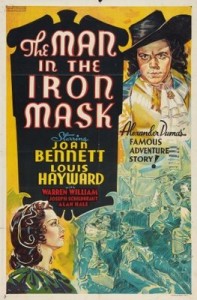
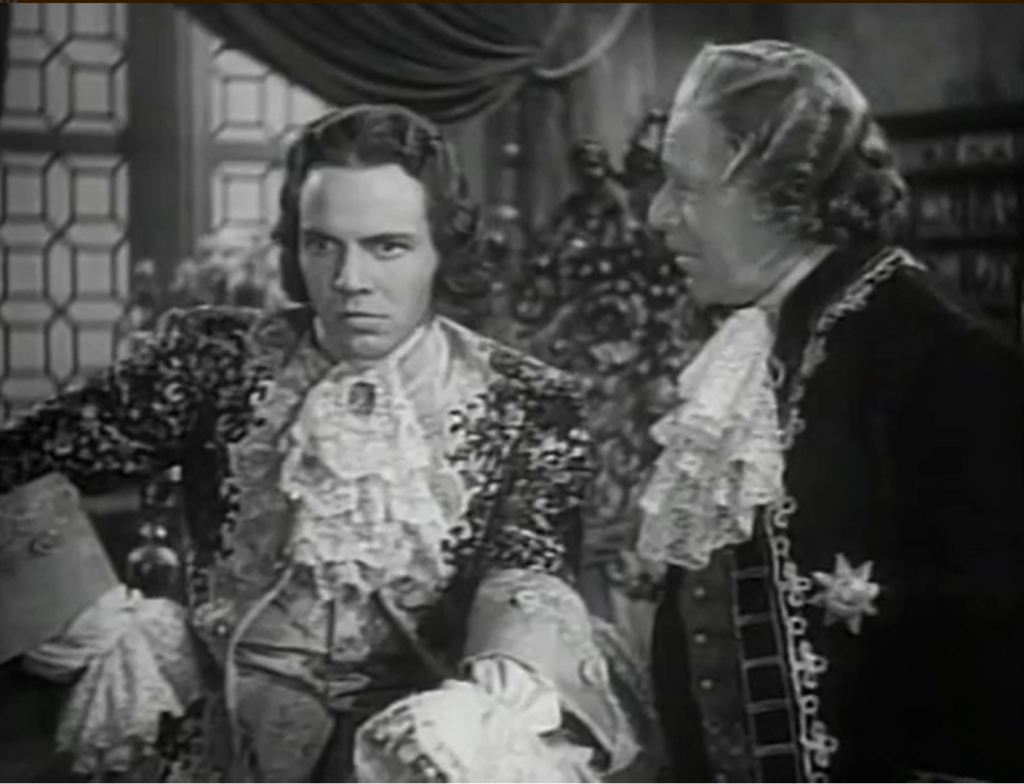
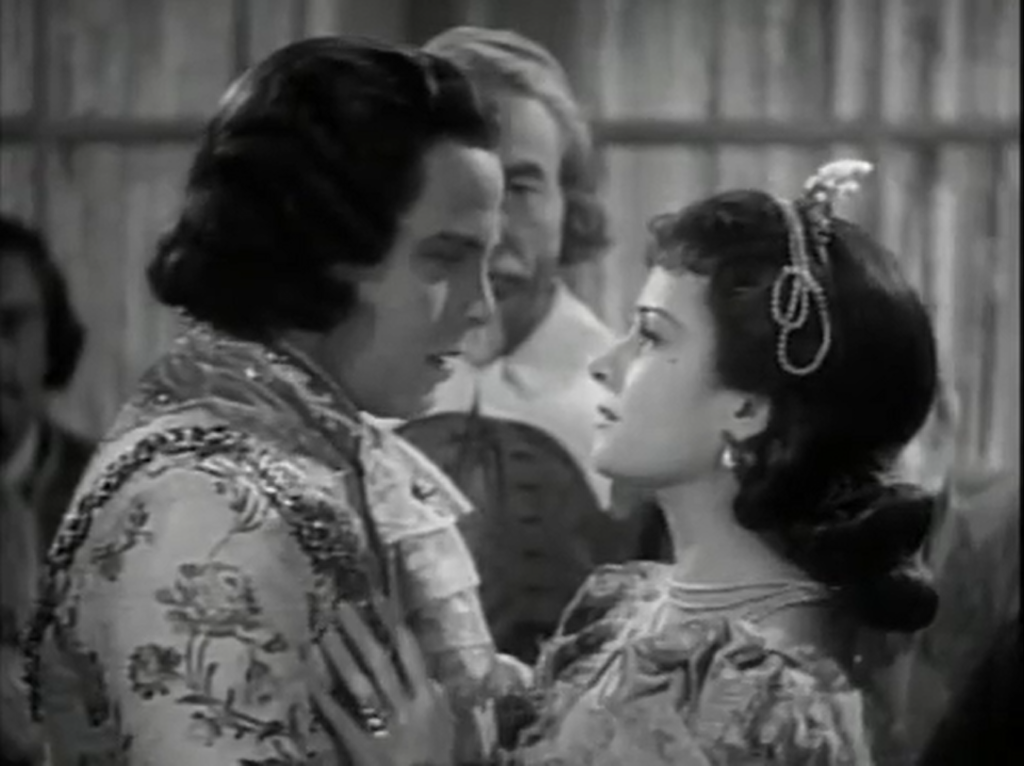
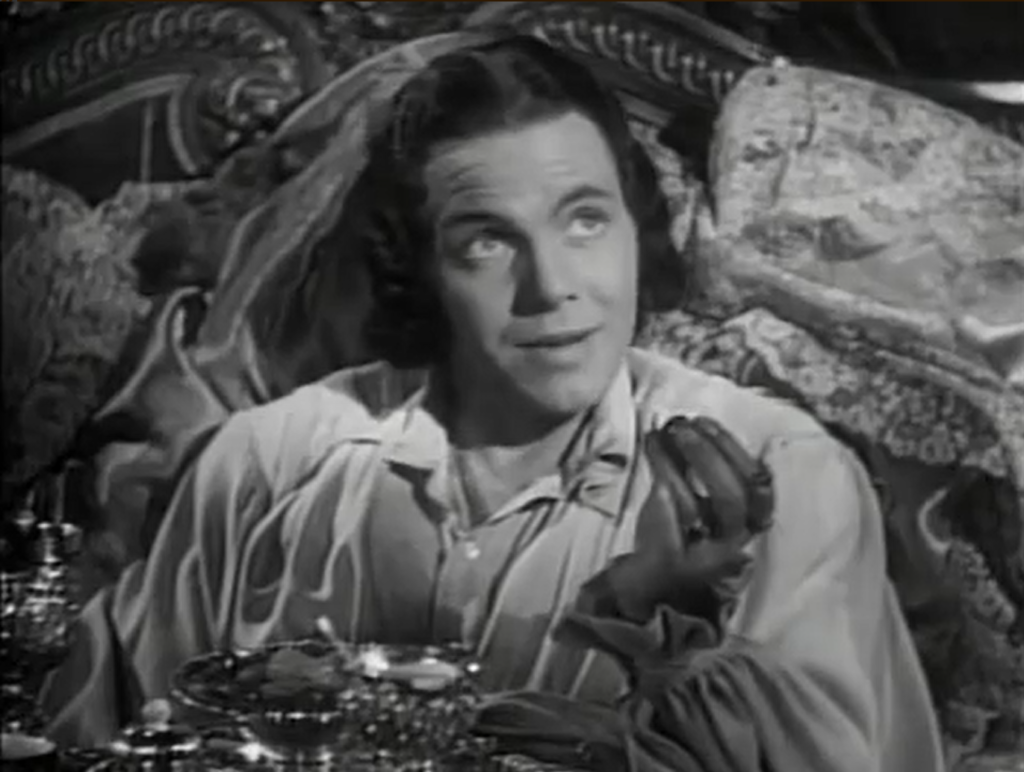
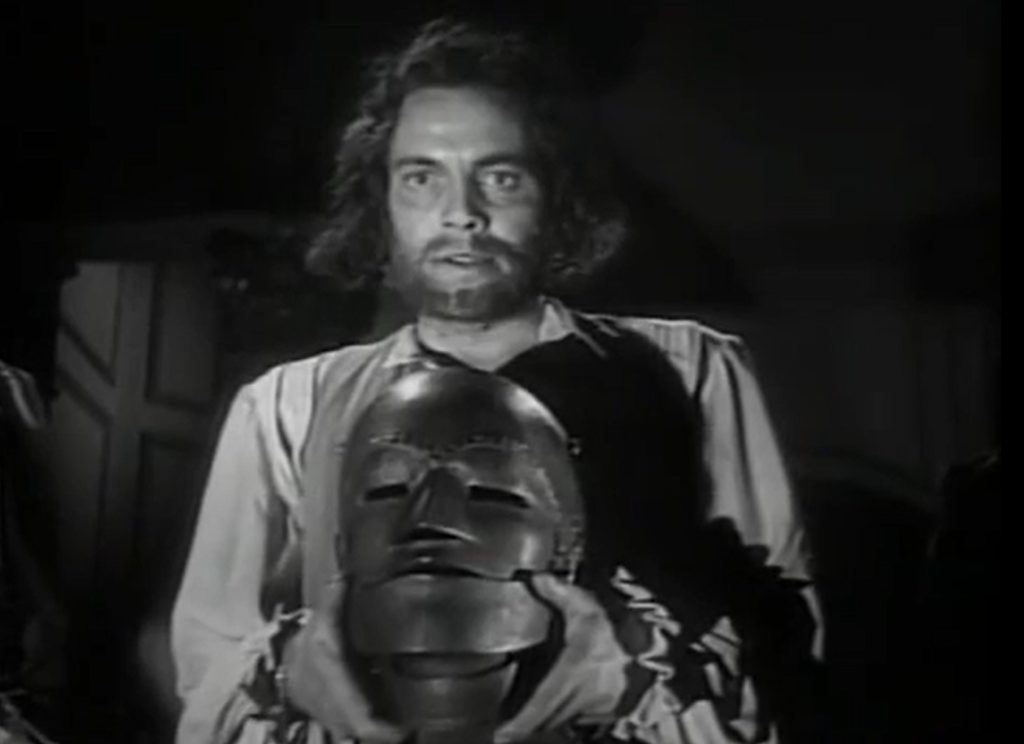
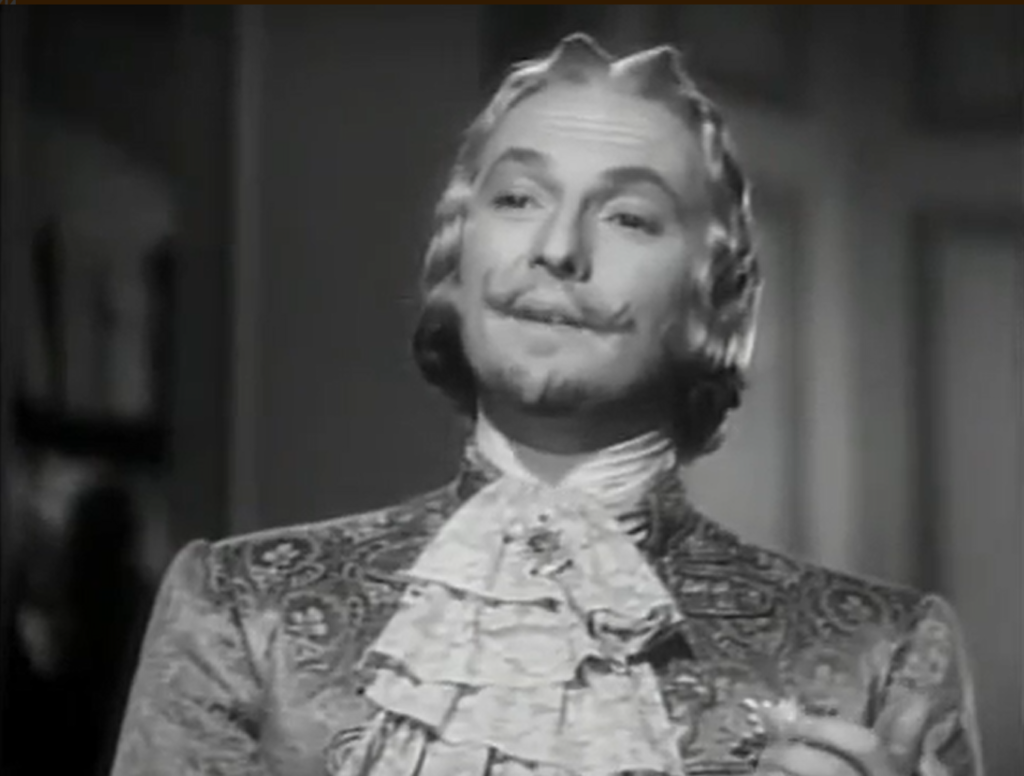
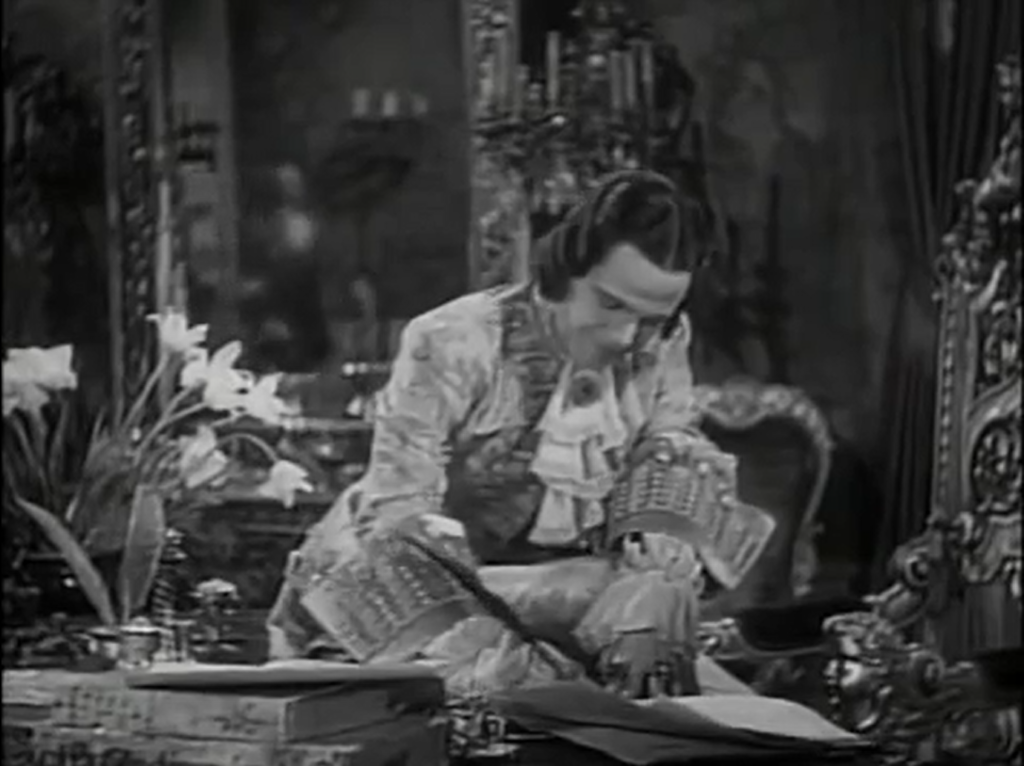
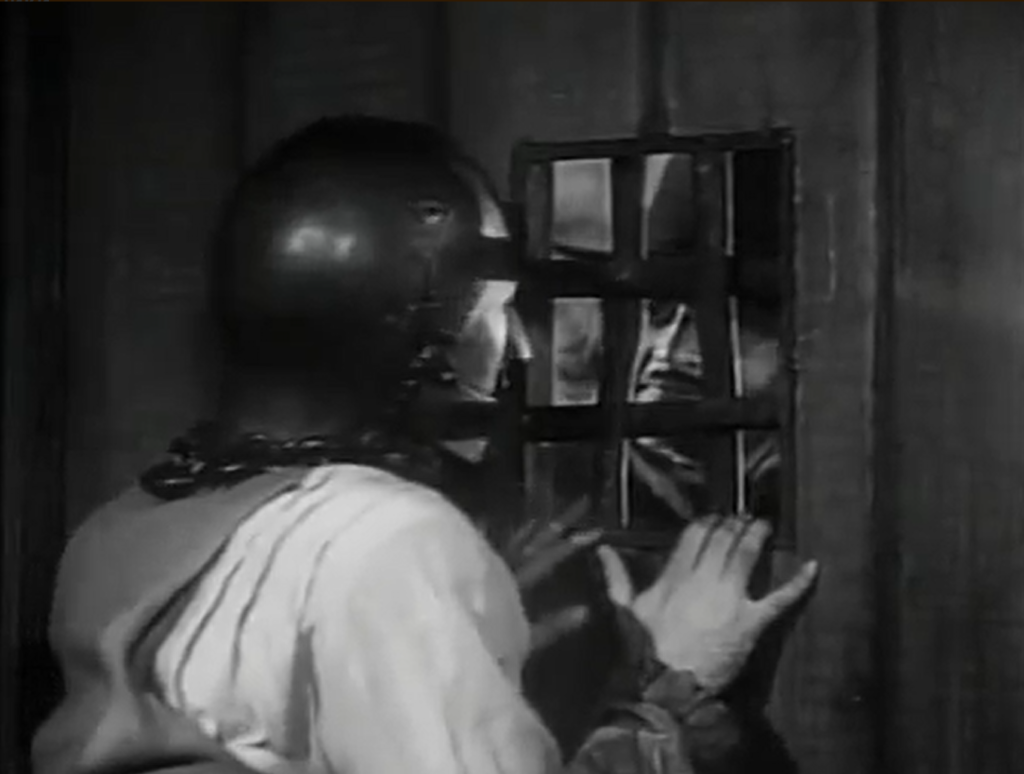
One thought on “Man in the Iron Mask, The (1939)”
A once-must, as an enjoyable genre piece, and for a number of the leading performances, esp. Hayward in his dual role.
Having just read the Whale biography by James Curtis (1998), I know that making this film was not the most pleasant of experiences for Whale (bossy producer; Hayward claims Whale didn’t like him) and that his enthusiasm seemed to ebb as filming progressed. Nevertheless, the film was commercially successful – and I have to say I find it more of a treat than I generally find films of this sort. Even if it lacks some of Whale’s visual style, the pacing is good, scenes are economic and to the point and – when the mask of the piece is introduced – the film does harken back to Whale’s horror flicks. (That mask is one creepy piece of equipment.)
When it comes to the cast, it’s hard to believe that Whale might not have been in there with strong guidance. This could be Hayward’s best work ever, and the same could be said for Bennett; even if she isn’t “distinguished”, she’s still effective. Schildkraut is simply amazing with his subtly evil portrayal. (He’s such a weasel with lines like, “But I’m not interested in the future of France. I’m interested in the future of Fouquet.”) And I am rather taken with Walter Kingsford’s turn as the loyal, trustworthy Colbert, who works from within to bring Philippe to power. William and Hale are also fine as the standout Musketeers.
What keeps the film going is the amount of intrigue involved – and there’s plenty, causing various unforeseen twists and turns (and, of course, deceit). Overall, the story builds well and I don’t seem to feel any kind of lull during it; it all seems to play out rather smoothly. As I said, this is not really among my favorite types of films, but it’s quite satisfying.